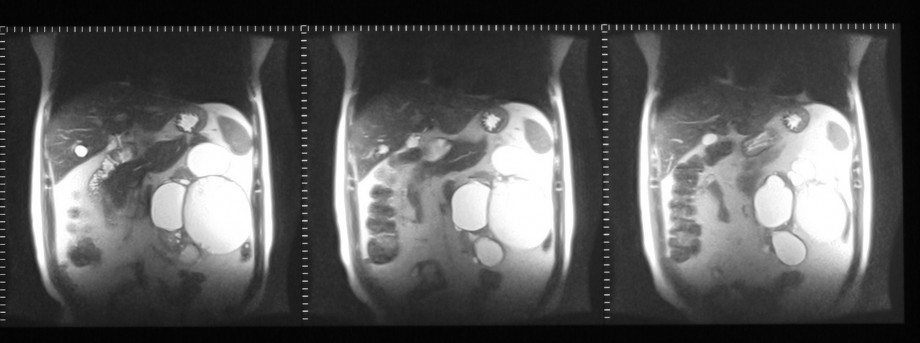The University of Nottingham
 Exchange online
Exchange online
Research Exchange
MRI to offer advances in treatment for chronic kidney disease

Detailed structural and functional ‘maps’ of the human kidney made using advanced scanning technology are to be developed by scientists at The University of Nottingham.
The research, funded with £107,623 from the Dr Hadwen Trust, a non-animal biomedical research charity, aims to further our understanding of how the kidneys function, ultimately leading to better monitoring and treatment for chronic kidney disease.
It will be the first of its kind to use magnetic resonance imaging to investigate the role which oxygen plays in keeping the human kidney healthy.
The study is being led by Dr Sue Francis in the University’s Sir Peter Mansfield Magnetic Resonance Centre in collaboration with Professor Chris McIntyre in the University’s School of Medicine.
Current tests ‘invasive’
Dr Francis said: “Current tests for chronic kidney disease can be very invasive and patients may need to return to the hospital on a number of occasions.
“The aim of this project is to produce a set of non-invasive measurements that we can produce in a single, one-hour scanning session that can assess the blood flow and oxygenation of the kidney and which could eventually be rolled out in a clinical setting to benefit patients.”
The kidneys play a vital role in the human body, filtering waste products from the blood before converting them to urine. They also help to maintain blood pressure, regulate chemical levels in the body, keep bones healthy by producing a type of vitamin D and stimulate the production of red blood cells.
However, health conditions such as diabetes and high blood pressure can affect how effectively the kidneys can work and can lead to chronic kidney disease, causing tiredness, water retention and weight loss and a loss of appetite.
The disease is currently diagnosed by a blood test which measures the GFR — glomerular filtration rate — which is the volume of blood which is filtered through the kidneys. In more serious kidney conditions, a renal biopsy may need to be performed, which involves removing a small sample of tissue from the kidney.
Correcting a crude picture
Dr Francis added: “Current methods can only offer a fairly crude picture of what is happening in the kidneys and how that is changing over time. For example, if one kidney is doing most of the work it can be difficult to tell and taking just a small sample of tissue from one area of the kidney may not be representative of the organ as a whole.”
The research will instead use magnetic resonance imaging (MRI), powered by a 3 Tesla magnet, to scan the kidney and build up a detailed picture of perfusion in the kidney — the way in which blood is delivered to and flows through the organ. It will also measure the metabolic rate of oxygen — how oxygen is consumed within the kidney — which has not been done before using MR imaging.
The research will develop novel MRI techniques, and use these techniques in healthy volunteers to study the kidney’s response to oxygen and CO2 changes to assess how the kidney behaves under stress which mimics diseased kidneys.
Next, the researchers will scan 20 patients with diabetic nephropathy (kidney disease caused by diabetes) in a bid to prove the effectiveness of their methods.
The scanning technique could be used to track the progression of a patient’s disease and to monitor the effect and effectiveness of drugs being used to treat the condition.
Magnetic Resonance Imaging (MRI) was invented at The University of Nottingham, for which Sir Peter Mansfield was jointly awarded the Nobel Prize for Medicine in 2003. The Sir Peter Mansfield Magnetic Resonance Centre (SPMMRC) is a world-leading centre for the continuing development of MRI, and is the UK centre for ultrahigh field MRI.
MRI has revolutionised diagnostic medicine, with more than 26,000,000 investigative procedures carried out each year.
MRI and the Developing Brain is a key project within the University’s appeal, Impact: The Nottingham Campaign, which is delivering the University’s vision to change lives, tackle global issues and shape the future. Find out more about our research and how you can support us athttp://tiny.cc/UoNImpact
Tags: Dr Sue Francis, kidney disease, MRI
Leave a Reply
Other

Top prize for quantum physicist
A University of Nottingham physicist has won a prestigious medal from the Institute of Physics for […]

Zero carbon HOUSE designed and built by students comes home
Design and construct a low cost, zero carbon, family starter home, transport it to Spain, build […]